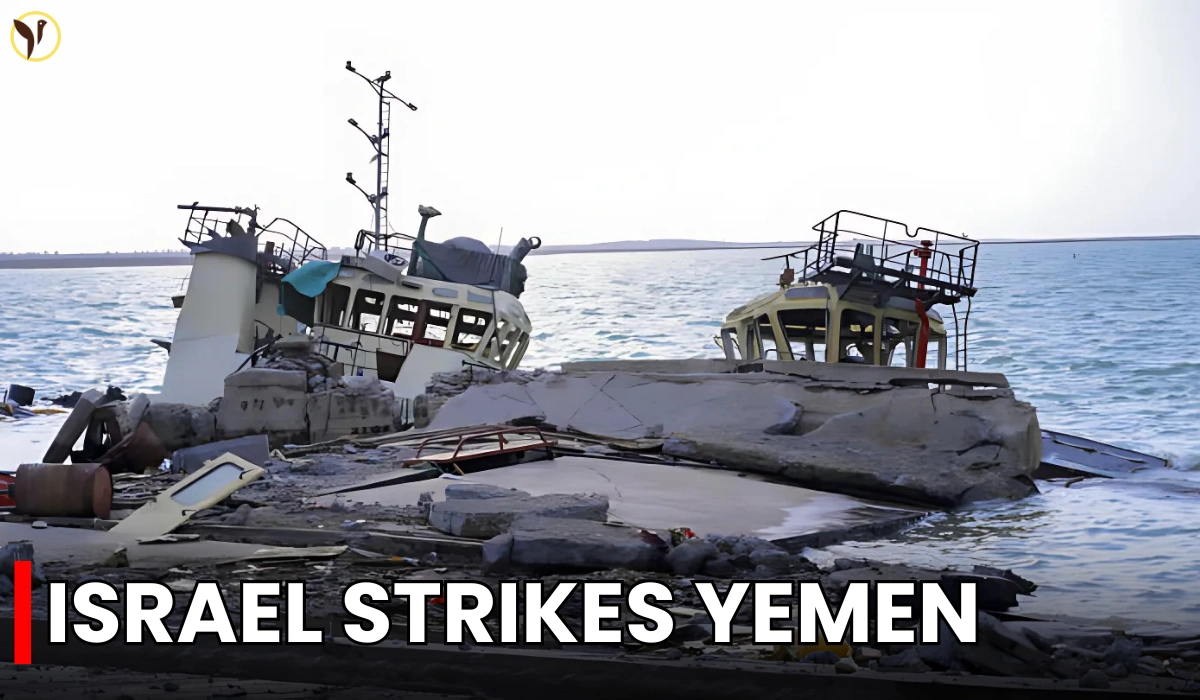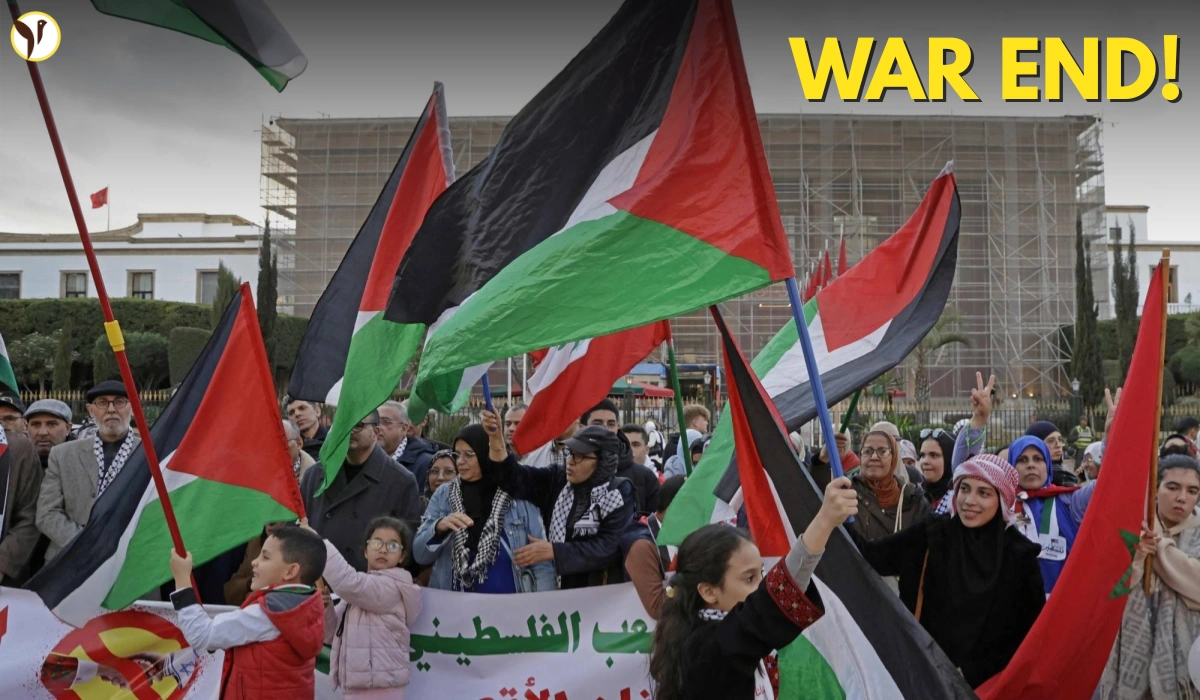In the early hours of Monday (4 AM CET; 2 AM GMT), Israeli aircraft targeted and hit three important Yemen ports that are used for weapon transport from Iran to the Houthis, and the Ras Qantib Power Plant: Hodeidah, Ras Isa, Salif. This happened after the Houthis fired at least two missiles toward Israel Sunday night.
The strikes are the result of an operation called Black Flag. This is what Israel has been referring to in its reports as the term for the response plan. Israeli officials said these Yemeni sites are used to transport weapons from Iran to the Houthis, and to monitor ships traveling through the Red Sea. The Galaxy Leader - a vessel that was hijacked late in 2023 - was targeted and destroyed. The Galaxy Leader, which apparently had a radar system on board and was used for maritime patrols, was reportedly not used for legitimate purposes.
This was the first strike against Yemen that Israel had done in almost a month. The Israeli military even notified port workers to evacuate before they commenced the strikes.
Sirens, Missiles, Darkness – Fear Across two Nations
Shortley after the attacks, Yemen launched two missiles toward Israel. Sirens blared throughout Jerusalem, Modiin, the Dead Sea area, and elsewhere. Israel's air defence attempted to intercept them: I have yet to see any official hit or casualty reports.
On the Yemen side, local public from Hodeidah, reported on some bombing of the power plant; the city's power was gone; hospitals, homes, businesses—everything was dark.
For hours, people on both sides were in apparent danger—one in bunkers and the other in a "bunkers" of silence.
- In Israel, sirens forced evacuations, people cowered under tables.
- In Yemen, still blacked out in the summer heat, yet there were no warnings for families in the dark.
Emotional tension is very real. Fear spreads very quickly on both sides. Who knows how long this situation will remain bad?
New angles: power blackout, radars, logistics
Most news stories emphasize missiles and ports. Here are angles that don't get much traction yet—but matter a great deal:
- Blackout implications: Knocking out Ras Qantib’s power plant has moved hospitals to generator power and is affecting thousands of homes. Repairing that infrastructure may take weeks—and using imports consumes weeks, delaying humanitarian relief in a combat-impacted area.
- Radar ship loss: The Galaxy Leader’s radar capability was part of naval surveillance. With it now destroyed, the Houthis lose a capability to safely track commercial ships transiting the Red Sea. Of course, Israel lost situational awareness as well, and can be assumed the watershed could see changes in who wards on the Red Sea now.
- Logistics pivot: Israel flew jets 1,800 km from home. That consumes tanker offloads and then some. It required mid-air refuelers and real-time airspace tracking to pull off. It was an episode of long-range airborne capability that largely went unremarked in headlines.
- Shipping alert: The Red Sea is an important trade route. Ongoing strikes near ports and shipping lanes is prompting insurers to indicate its a "war zone"—pushing shipping prices, and pending fuel prices, globally.
These are not fringe aspects of the incident—they shape what comes next.
ALSO READ: Israel Hamas Peace Deal: Agree for Ceasefire & Hostage Release
Houthis strike back – solidarity or chaos?
The Houthis claimed that the missiles were fired "in response" to the attacks to the port and the plant. They also called it solidarity with the Palestinians in Gaza. In their communications they were defiant, but not detailed.
"We won't stop," they said. They said that their air defences had taken out multiple Israeli missiles during the attack, which they have not confirmed.
This kind of tit-for-tat is alarming. Each side is pushing hard. Neither side seems interested in stopping. Eventually, something is going to break this spiral.
Public Reactions
On Twitter some reactions stand out:
Israel carried out it first strikes against Houthi targets in Yemen since the Israel-Iran ceasefire, attacking ports and a power plant around midnight local time Sunday night into Monday morning.
— Africamaria d darkestberry (@mamafricampenzi) July 7, 2025
What’s next – warning signs and risks
For now, a few things to watch carefully:
- More outages in power—be it for days in Yemen or in other cities, which would contribute to civilian suffering in that region.
- Stockpiles in shipping—insurers may "blacklist" Red Sea routes; effectively carrying the traffic around Africa and thereby delaying items.
- Escalation risk—should Houthi shooting continue, Israel may decide to take naval or ground actions.
- Global reactions—dependant countries using shipping in this area, including India or China, may play a role.
There isn't a good solution. Both sides see this as a fight for their survival.
Expressing empathy—fear, anger, uncertainty
You can feel the anxiety.
- Israelis listening for sirens after months of Hamas rockets.
- Yemenis worry about water and light and caring someone in the hospital while at least a power line is bombed.
No one asked for this. But it is here. That common fear helps us remember how fragile peace can be.
Summary – what happened and why it matters
- Israel bombed ports and power plant in Hodeidah, Ras Isa, and Salif Monday morning.
- Houthis replied with missiles—two launched, sirens sounded.
- Civilian toll may grow: darkness in Yemen, shipping costs rising globally.
- Israel showed off long-range strike ability; Houthis lost radar ship.
- We’re in a dangerous cycle—each move triggers the next.
Lives, trade, security—all hang in the balance. This stretch of Middle East isn’t calm—and could get worse.










